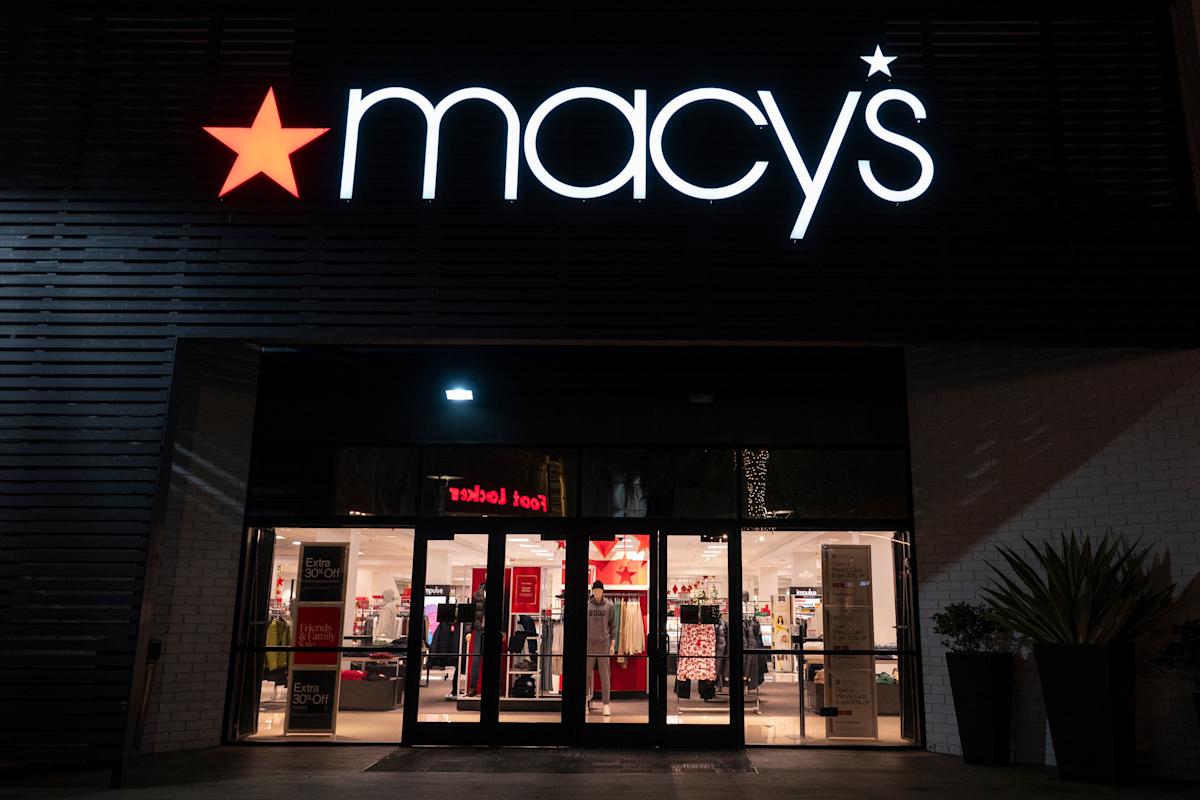Macy’s (M) on Wednesday posted its official third-quarter results, after it concluded an internal investigation into an employee hiding up to $151 million of expenses that led to a delay in reporting.
The third-quarter earnings were in line with preliminary results shared last month as America’s largest department store chain revealed the “accounting error”.
People close to the matter said the employee acted alone, and did not pursue the acts for personal gains.
The retailer reported adjusted earnings per share of $0.10, which beat Wall Street’s expectation of a loss of $0.01.
Net sales declined 2.4% from a year ago to $4.74 billion, slightly missing the $4.75 billion expected. Same-store sales declined 1.3%, better than the almost 1.5% forseen.
Macy’s stock price fell 8% before the bell on Wednesday.
Per Yahoo Finance data, shares are down 10% in the last 6 months, compared to the S&P 500’s (^GSPC) 12% gain.
As activist pressure builds, Macy’s is looking to convince shareholders its Bold New Chapter strategy is strong enough to propel it into the future.
The results “reflect the positive momentum” of the strategy, Macy’s Chairman and CEO Tony Spring said in the release. The company is “encouraged” by consistent sales growth at the first 50 stores, where it has made investments in staffing, product assortment, and visual displays, he added.
Same-store sales grew for the third straight quarter at those Macy’s locations, up 1.9% year-over-year, compared to 0.8% growth in the previous quarter.
In the fourth quarter so far, “comparable sales continue to trend ahead of third quarter levels across the portfolio,” Spring said.
Here’s what Macy’s shared in its official third-quarter results, compared to Bloomberg consensus estimates:
-
Net sales: $4.74 billion versus $4.75 billion expected
-
Adjusted earnings per share: $0.10 versus a loss of $0.01
-
Same-store sales: -1.3% versus -1.49%
Sales-growth weakness in stores that Macy’s plans to shutter was offset by the 50 stores showing improvement, alongside its luxury businesses, Bloomingdale’s and Blue Mercury.
Bloomingdale’s same-store sales rose on both an owned (1%) and owned-plus-licensed (3.2%) basis, driven by apparel, beauty and its online businesses.
Cosmetics brand Blue Mercury saw its 15th quarter of positive sales growth, up 3.3%, boosted by its variety of skincare offerings.
The company updated its 2024 guidance. It expects revenue to come in between $22.3 billion and $22.5 billion, versus a range of $22.1 billion-$22.4 billion previously.

